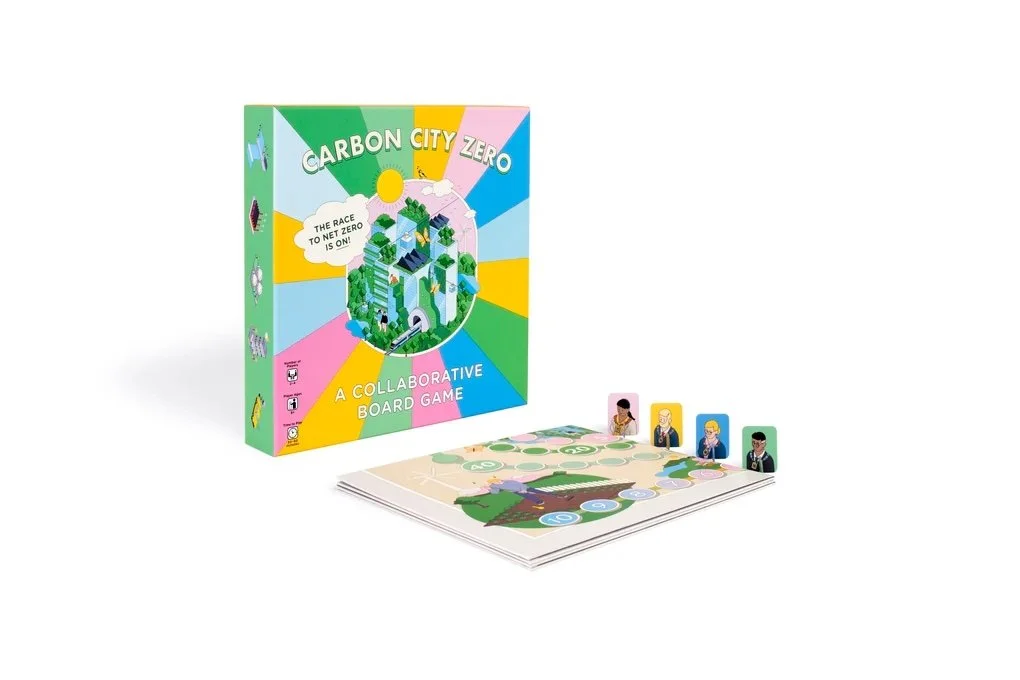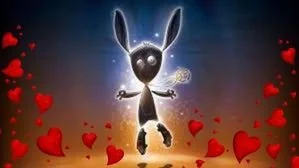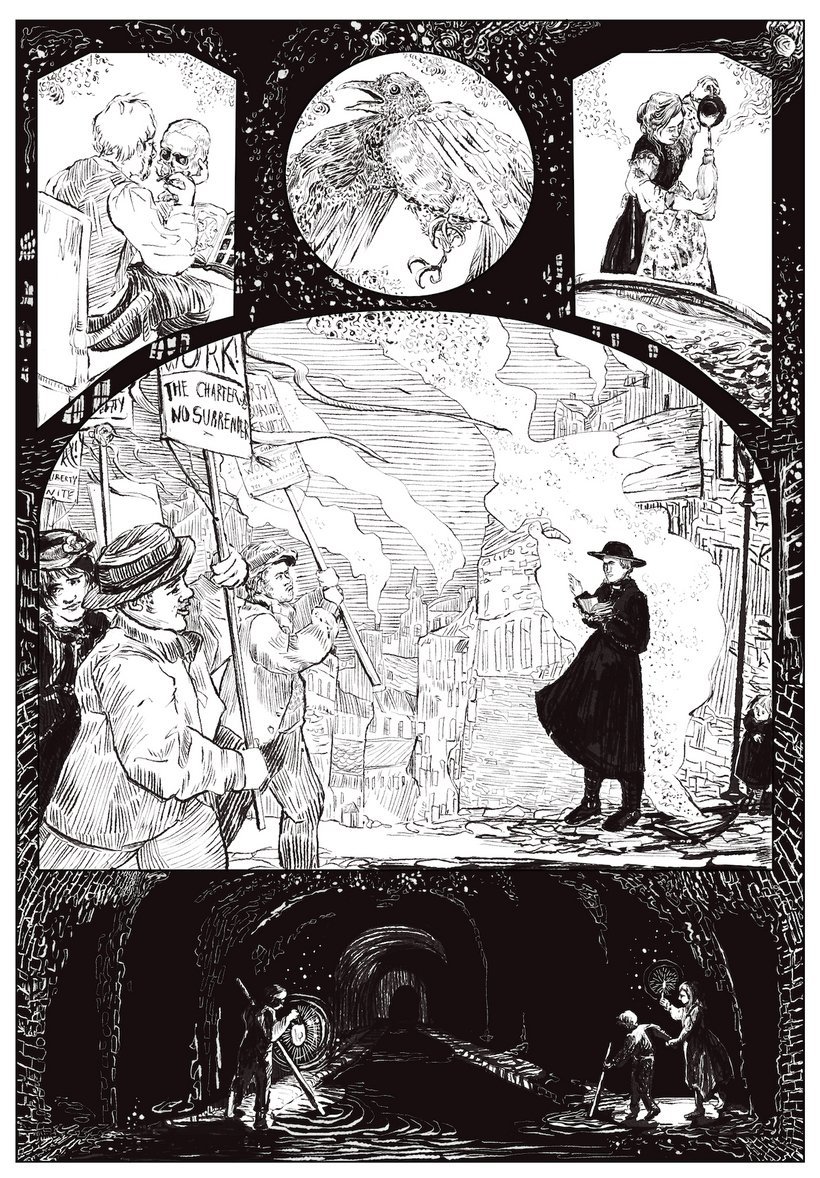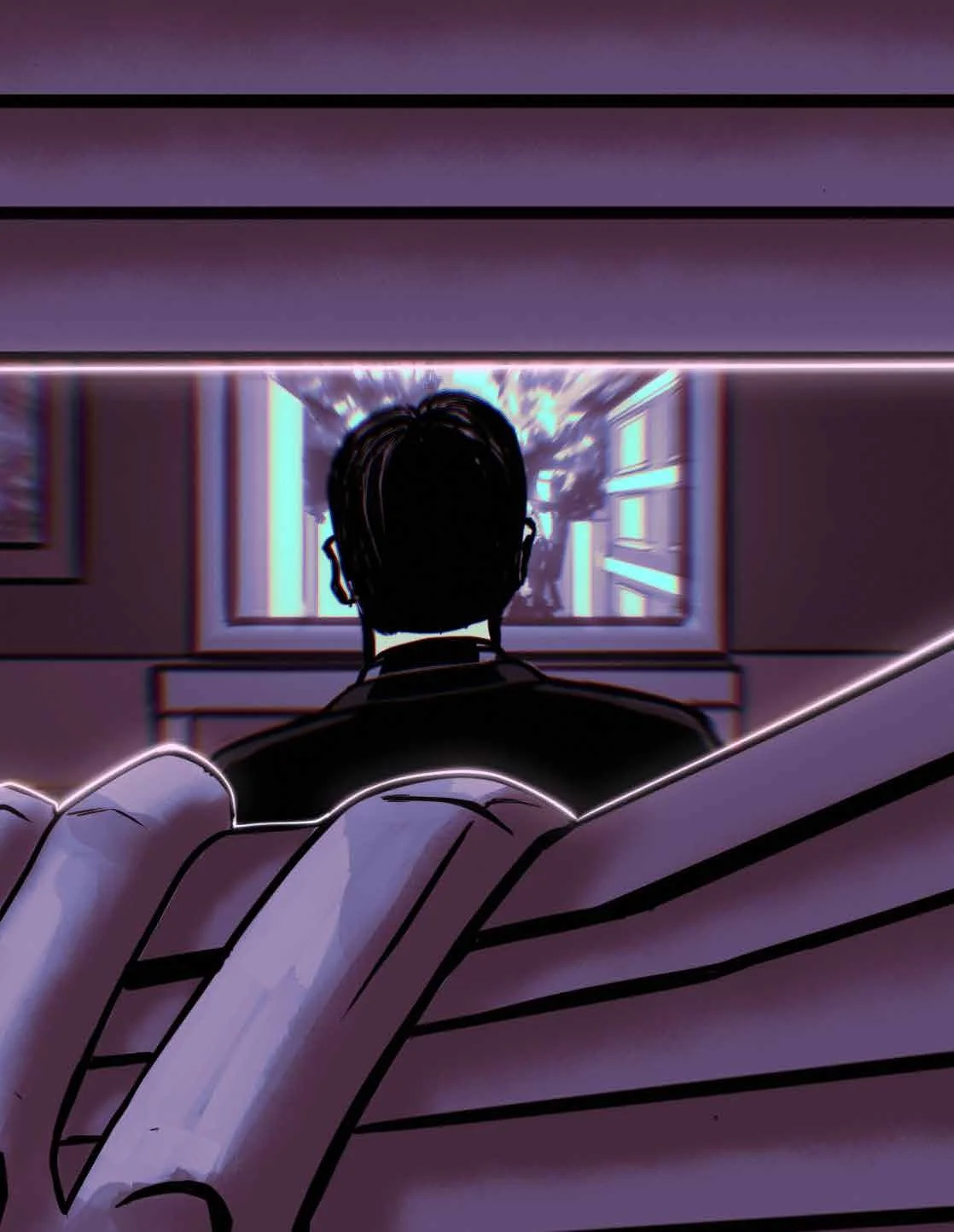Our Games
Original Games made for Research
Many members of the Manchester Game Centre make games as part of their research practice. These games explore various concepts and issues, sometimes communicating research findings, and other times, themselves a part of the research process. Here we share some of the games we have made as part of our practice as print and play resources. Enjoy! And please do get in touch with the makers with your comments, feedback and thoughts.
Carbon City Zero by Paul Wake and Sam Illingworth
As a newly appointed city mayor you have been tasked with creating a carbon neutral city. It sounds easy, but you'll soon discover that your carbon budgets are hard to balance. Can you hit the zero carbon target before your rivals? The race to become the first zero carbon city is on...
This game is available for free on the Print and Play arcade. In addition, it has been published by Laurence King, with updated art work.
A History of the Future in Five Rings by Chloé Germaine
A History of the Future in Five Rings is a climate crisis roleplaying game that introduces the collection, Rooted in Crisis, co-created by academics, climate scientists and game designers. The complete collection will be coming to Kickstarter soon, but, for now, you can check out A History of the Future in this quickstart preview.
Always on my Mind by Kirsty Bunting, Chloé Germaine and Paul Wake
A relationship storytelling game powered by Wolfgang Warsch’s The Mind. In romance stories the outcome is a sure thing. Of course there will be hiccups along the way, but we know the characters will get it together eventually. The fun is experiencing how they get there. In games, as in life, however, things are not so certain.
Always on my Mind is a relationship storytelling game powered by Wolfgang Warsch’s The Mind . In Warsch’s curious game, players are dealt cards (from a deck numbered 1-100) which they must play to the centre of the table in ascending order without communicating . Staring into each other’s eyes, players play their cards when they feel that the time is right. With each round the number of cards increases (one card at level 1, two at level 2, and so on…) until someone makes a misstep or the players reach level 12, at which point they win. Providing the mechanics for our game, The Mind combines interpersonal connection with a tension that builds as the difficulty level increases and the stakes, for the characters, become higher...
The Miasma of Miswell Hill by Chloé Germaine and James Louis Smith
A threat for The Between by Jason Cordova, published by the Gauntlet
The Between is a tabletop roleplaying game about a group of mysterious monster hunters in Victorian-era London. They are residents of a place called Hargrave House, and their job is to investigate and neutralize monstrous threats terrorizing the city—threats that Scotland Yard won’t or can’t handle themselves. As the story progresses, they become aware of the plans of a Moriarty-style criminal mastermind they will eventually have to face in order to save Queen and country.
The Between is directly inspired by the gothic horror TV show Penny Dreadful, but also takes a lot of inspiration from British horror classics, graphic novels like From Hell and The League of Extraordinary Gentlemen, and pulp-era stories. Mechanically, it’s Powered by the Apocalypse but also uses the mystery system from Brindlewood Bay.
Available as part of The Between Season 3 on DriveThruRPG.
The Bureau of Irregularities by Chloé Germaine
The Bureau of Irregularities is inspired by and emulates the sorts of stories told in the British science fiction television show Sapphire and Steel (Peter J. Hammond, 1979 - 1982). The programme follows a pair of inter-dimensional operatives, ‘Sapphire’ and ‘Steel’ (played by Joanna Lumley and David McCallum). The audience is told very little about the purpose of these agents, but they appear to be engaged in guarding the continuing flow of time. In The Bureau of Irregularities, players take on the role of similarly mysterious agents. In this setting they usually look and act like humans, but they are not humans. They are extra-dimensional beings that are sent on assignments by the Bureau to preserve the flow of space and time throughout the Chaosmos. One player takes the role of a Director, managing the players’ progression through their assignments. Chloé’s creative work is informed by, and feeds into, her academic research. In this case, this TTRPG has developed from work she has been doing on literature, quantum physics, and temporality, which appears in the academic monograph, The Dark Matter of Children’s Fantastika: Speculative Entanglements (with Bloomsbury).
The Bureau of Irregularities is an original game-world and ruleset built on the Trophy system developed by Jesse Ross, itself based on Cthulhu Dark by Graham Walmsley. All three use simple dice mechanics and light rules to enable collaborative storytelling and world-building. Chloé’s work continues to be inspired by the innovative modes of storytelling being developed by the indie TTRPG community.
Codex: Time is published by Jason Cordova and David LaFreniere for The Gauntlet. The cover illustrator is Marcus Jimenez, who also produced original art work for The Bureau of Irregularities. The Gauntlet is a community that celebrates tabletop roleplaying games. Each issue of The Codex features original games, supplements for existing games, and hacks—all organised around a theme. Codex: Time is available on Drive Thru RPG.
Deep Roots by Chloé Germaine and Jonathan Buckley
In 1950s Canada, officers of the law and Children's Services investigate a double murder and kidnapping that seems to connect back to an abandoned orphanage in the backwaters of lumber country. This game is part of the collection, Mother's Love, which presents three investigations within the setting of H P Lovecraft's Mythos, written for Cthulhu Hack.
Happy Shoppers by Chloé Germaine and Paul Wake
If you’ve ever played Happy Families, you already know the basics of Happy Shoppers. In this game there are eight families consisting of four cards. Each ‘family’ is a product. You can recognise a product family because all the cards will share the same symbol. Also, each card lists the other members in that family. The aim of the game is to treat yourself by collecting as many wonderful products as possible.
This game was made for the f*ck capitalism game jam on itch.io. You can find the latest version of our game by clicking on the image.






